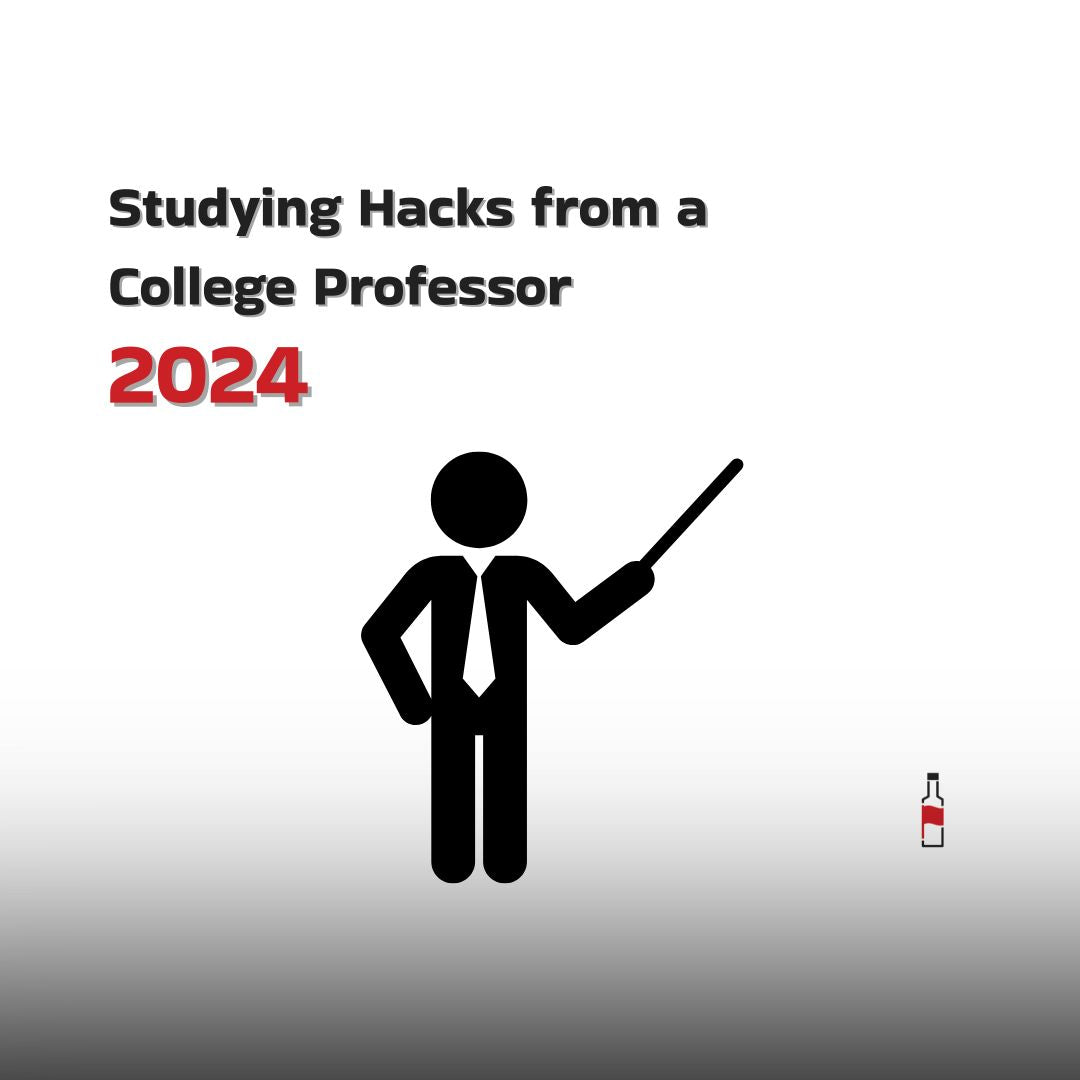
Studying Hacks from a College Professor
It’s become painfully clear that many of you are struggling, not just with the mental toll of the pandemic and online learning but also with adapting to college-level studying, which is a far cry from what you were used to in high school.
From my observation and based on solid research, one of the key areas where students could use some help is in note-taking. It’s frustrating to see such a crucial skill overlooked in educational curricula because, believe it or not, mastering this could revolutionize your academic performance.
Here are some science-backed studying hacks that every student should know:
1. Handwrite Your Notes for Better Memory Retention
Studies show that taking notes by hand helps you remember information better than typing them on a laptop, especially when it comes to understanding concepts, not just memorizing facts. Students who write their notes tend to grasp and retain concepts three times better than those who don’t.
2. Use Your Own Words
When you’re jotting down what’s being taught, avoid writing verbatim from what the professor says or from slides. Instead, paraphrase in your own words. This method proves to be more effective in helping you understand and remember the material because it forces you to process the information as you write it down.
3. Incorporate Visuals
Don’t shy away from drawing graphs, maps, or any visuals that can help you conceptualize the information better. Visual aids can significantly enhance your understanding and retention of complex concepts.
4. Review Notes Within 24 Hours
One of the most effective hacks for studying is to review your notes within twenty-four hours of taking them. This practice helps solidify the knowledge before your brain categorizes it as non-essential and ‘dumps’ it, which typically happens during sleep as your brain clears out what it perceives as unnecessary information.
For those looking for practical examples of stellar note-taking, I highly recommend checking out resources that show high achievers in action, like the med student who scored in the 99.9th percentile partly thanks to his note-taking strategy. Here’s a video that might change the way you approach studying: Study Smart.
Let me know if these tips help or if they’re just a repetition of what you may already know. College is tough, but with the right strategies, it doesn’t have to be. Remember, it’s only a few years of challenge, and then a different set of challenges in the workforce. Hang in there!
TL;DR: Improving your study techniques doesn't have to be complicated. Simple changes in how you take and review notes can save you time and boost your academic performance dramatically.


2 comments
DR GERALD JEST NAJLEPSZYM RZĄDZĄCYM CZARAMI ONLINE, KTÓRY PRZYWRÓCIŁ MÓJ ZNISZCZONY ZWIĄZEK I BARDZO POLECAM DR GERALDA KAŻDEMU, KTO POTRZEBUJE POMOCY! WHATSAPP +14242983869
Mój mąż zostawił mnie dla innej kobiety 1 rok temu i od tamtej pory moje życie jest wypełnione bólem, smutkiem i złamanym sercem, ponieważ był moją pierwszą miłością, z którą spędziłam całe życie. Mój przyjaciel powiedział mi, że widział kilka świadectw rzucającego czary o imieniu Dr Gerald, że może przywrócić kochanka w ciągu kilku godzin, zaśmiałam się i powiedziałam, że nie jestem zainteresowana, ale z powodu miłości, jaką moja przyjaciółka do mnie czuła, skonsultowała się z wielkim rzucającym czary w moim imieniu i ku mojemu największemu zaskoczeniu po 11 godzinach mój mąż zadzwonił do mnie po raz pierwszy od roku, że za mną tęskni i że jest mu tak przykro z powodu wszystkiego, przez co przeszłam. Wrócił do mnie i teraz jesteśmy szczęśliwi razem. Nadal nie mogę w to uwierzyć, ponieważ jest to wysoce niewiarygodne. Dziękuję dr Geraldowi za przywrócenie mojego męża, a także mojej kochanej przyjaciółce, która wstawiła się za mną, dla każdego, kto może potrzebować pomocy tego wspaniałego czarodzieja, oto adres e-mail
psychicspiritualrealm@gmail.com
WhatsApp: +14242983869
Muchas gracias. ?Como puedo iniciar sesion?